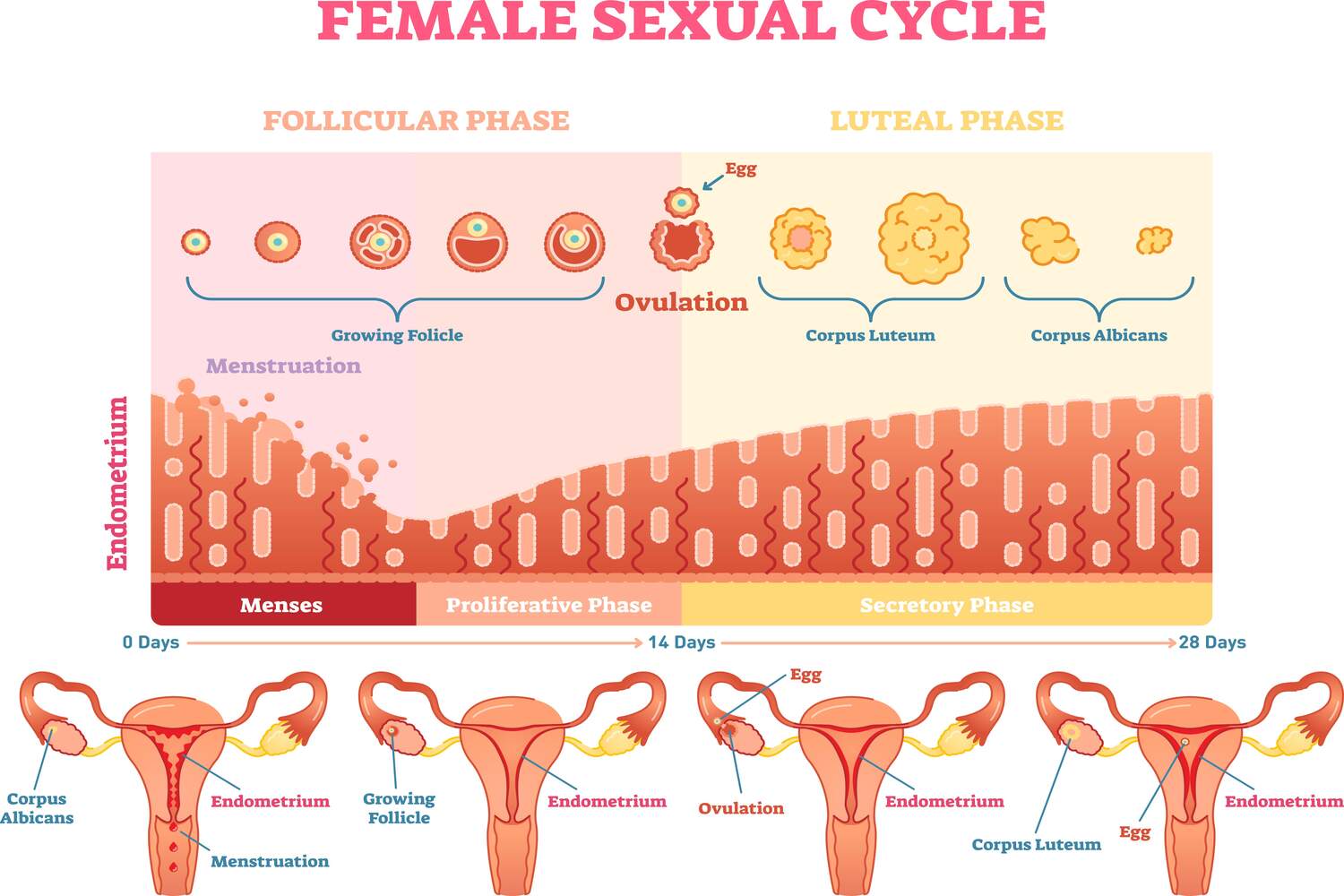
The journey of conception and childbirth is an emotional ride for most couples. Amidst this phase, stress often operates as a silent opponent to deal with. The overwhelming feelings and anxiety can cast a shadow over the fertility process which can affect conception. Here are some tips to reduce stress when trying to conceive.
Heightened stress can impact both partners equally, impacting their overall reproductive health. Thus, steps need to be taken to reduce stress when trying to conceive. It is essential to adopt a holistic approach to managing stress. If you are trying to conceive and are looking for ways to manage your stress levels, here is everything you need to know.
In This Article
- How Does Stress Impact Fertility?
- Top 10 Tips To Reduce Stress When Trying To Conceive
- When To Consult A Doctor?
- FAQs
How Does Stress Impact Fertility?

Stress is indeed a common experience and it gets more complicated when one is trying to embrace motherhood. The wait appears daunting and many women who fail to conceive after several try attempts may feel overwhelmed and anxious. Feelings of powerlessness creep in and there is a mounting stress over her head and heart.
Did you know that 1 in 6 women suffer from some unwanted delay in conception (1)? In most cases, the problems stem from obsessive worries about fertility, which can be emotionally exhausting and completely disrupt inner peace.
Science-backed studies have confirmed that anxiety and depression can delay a woman’s ability to conceive (2). Almost 12% of married women have trouble conceiving or they may not sustain the pregnancy for a long time. The inability to conceive can cause anxiety, sadness, shame, guilt, and poor self-esteem; thereby the vicious cycle of stress continues (2A).
Let’s understand how stress can impact fertility.
1. Hormonal Imbalance And Ovulation
Prolonged emotional burden disrupts hormone release, affecting ovulation. Excessive release of stress hormones such as cortisol (3) can interfere with the release of another hormone known as GnRH (gonadotropin-releasing hormone), a hormone important for ovulation. The disruption may lead to irregular menstrual cycles, thereby reducing the chances of getting pregnant.
[Read More: Best Ovulation Period For Pregnancy]
2. Overthinking And Worrying About Infertility
Stress levels are bound to increase with unsuccessful attempts at getting pregnant. These levels go further when successful conception does not happen after months or even a year or more of trying.
However, the reality is, that overthinking and worrying about failed conception attempts actually disrupt hormones and make it even harder to get pregnant. Study findings reveal that 40% of women suffer from anxiety attacks and depressive episodes when the waiting time for conception gets longer (4).
Top 10 Tips To Reduce Stress When Trying To Conceive
Here we bring in some of the key tips for expecting mothers and their partners to reduce stress while trying to conceive.
1. Understand Ovulation And Fertility

Knowing when ovulation occurs and calculating your fertile period (5) can increase your chances of getting pregnant. For this, you need to keep track of your fertile days and estimate the probable time of your ovulation. You also need to relax and take care of your diet and sleep patterns, so that the egg gets released as expected and your chances of conception can boost.
2. Know That Conceiving May Take Time
If you are overthinking about not getting pregnant, it’s time to pause and realize the fact that conception may take time. It allows you to be patient and stay calm. Moreover, it’s important to reduce mental pressure and anxiety for the hormones to start working at their normal pace for better success rates.
3. Understand And Accept that Stress Is Normal
When you’re trying to get pregnant, keep in mind that it is not a magical process that occurs with the wave of a wand. Little tension and stress are always a part of the journey. Moreover, your daily stressors related to work-life balance can also be a culprit. Therefore, it’s crucial to acknowledge stress as a normal and somewhat unavoidable aspect of life.
[Read : Yoga Asanas To Boost Fertility]
4. Relax And Practice Mindfulness

Another good way to reduce stress when trying to conceive is to engage yourself in relaxation exercises such as yoga, and guided meditation. Studies confirm that mindfulness can lower anxiety and mental restlessness when you’re trying to embrace motherhood (6). Mindfulness improves awareness and helps you accept things as they are without being over-critical. It helps to overcome infertility distress as well.
[Read : Meditation For Getting Pregnant ]
5. Exercise And Focus On Getting Fit
Regular exercise in the form of walking, or aerobics can keep you fit. Your menstrual cycles will be regular; which means ovulation is back on track. Moreover, exercise also improves mood and well-being. Research studies show that regular exercise can correct overweight issues and anovulation (no ovulation) and improve conception chances to great extents (7).
6. Eat Healthy, Stay Hydrated
Since your overall reproductive functioning plays a vital role in conception, you should practice these healthy habits regularly. It can optimize fertility by regulating hormonal balance. Adequate nutrition along with proper intake of water supports reproductive processes, potentially increasing the chances of conception.
[Read : Fertility Supplements and Vitamins For Men]
7. Get a Preconception Check-up, Take your Supplements

If you’re feeling stressed out for not having a successful conception, you should go for checkups, just to ensure that there are no health issues that are delaying pregnancy. Preconception testing can be done for both women and men. Moreover, never forget to take your supplements such as folic acid and iron capsules, so that your chances of getting pregnant improve.
[Read : Fertility Supplements and Vitamins For Women]
8. Find a Support Group
When feeling overwhelmed and anxious, make sure that you share your deepest feelings with friends and family members. Try and join support groups of like-minded women who are also trying to conceive and plan a family. You can share your thoughts with them and also learn more from their experiences.
9. Take a Break
It is vital to pause your daily family routine, or work schedules so that you can relax mentally. Feelings of mental fatigue bring stress. Thus, pursue a hobby, or go for an outing with your family. You may also plan a date with your husband and rejuvenate your spirits in novel ways.
10. Sleep Well
When you’re trying to conceive, you should have 8 to 9 hours of sleep so that your body and mind can relax. Proper sleep hygiene that involves sleeping at the same time every day, and not using a screen while on bed is equally important. Studies show that poor sleep quality in women leads to anxiety, hypertension, and cardiovascular illnesses that can impact fertility and conception (8).
When to Consult a Doctor?
It is important to address stress soon if your anxiety is soaring high, especially when you are trying to have a baby and you feel the stress is interfering with your ability to conceive. Your healthcare provider may suggest ways to reduce stress.
Moreover, if your stress is not allowing you to relax and is interfering with daily chores, it’s time to consult a doctor at the earliest. Remember that timely treatment can increase the chances of conception to a significant extent.
Reducing stress when trying to conceive not only increases the chances of getting pregnant, it also fosters the creation of a conducive environment for the process of pregnancy and childbirth to happen without hassles.
[Read : Preconception Detox For Fertility]
FAQ’s
1. Does Stress Affect Trying To Conceive?
Yes, higher stress levels can affect conception by disrupting hormonal balance and delaying your menstrual cycles. Moreover, overthinking and anxiety about not being pregnant can spiral your fear further and lead to fertility issues, making conception difficult to achieve.
2. How Can I Stop Overthinking When Trying To Conceive?
To stop overthinking, divert your mind into doing activities that you like. Pursue hobbies or start learning a new art, so that your racing thoughts can get checked for some time. You can even practice regular yoga to calm down mental restlessness.
3. Why is Trying to Conceive So Hard?
Sometimes, trying to conceive gets hard if you have fertility issues, or hormonal imbalances that make the process more complicated. However, with positive lifestyle changes, diet, and exercise, you can better your chances of conception. Consult a fertility specialist if you are worried about the delay in getting pregnant.
4. Can Stress Affect Ovulation?
Yes, stress can impact ovulation in negative ways. The reproductive hormones may not work as they should. It can lead to fertility issues, leading to difficulties in conception.
References
- ABC of subfertility: Extent of the problem – PMC – [https://www.ncbi.nlm.nih.gov/pmc/articles/PMC188498/]
- The relationship between stress and infertility – PMC – [https://www.ncbi.nlm.nih.gov/pmc/articles/PMC6016043/]
- Cortisol Reduces Gonadotropin-Releasing Hormone Pulse Frequency in Follicular Phase Ewes: Influence of Ovarian Steroids – PMC –[https://www.ncbi.nlm.nih.gov/pmc/articles/PMC2630911/]
- The relationship between stress and infertility – PMC – [https://www.ncbi.nlm.nih.gov/pmc/articles/PMC6016043/]
- Revisiting the fertile window – Fertility and Sterility – [https://www.fertstert.org/article/S0015-0282(15)00137-5/fulltext]
- Application of Mindfulness-Based Psychological Interventions in Infertility – PMC – [https://www.ncbi.nlm.nih.gov/pmc/articles/PMC7295259/]
- The effect of physical activity on fertility: a mini-review – PMC – [https://www.ncbi.nlm.nih.gov/pmc/articles/PMC10310950/]
Read Also: Fertility Cleansing – What is it, How to Do it and Top Benefits
